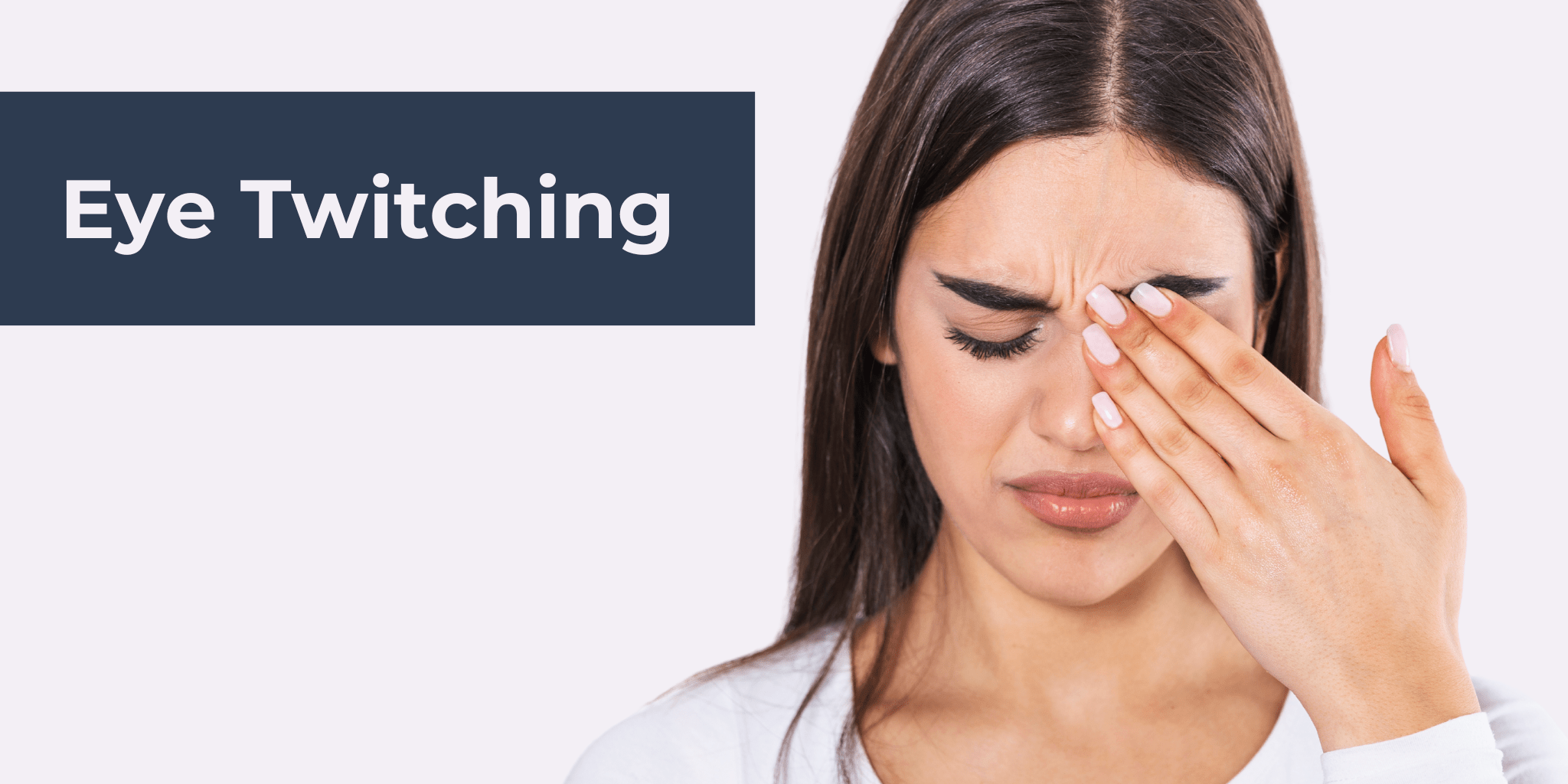Eye twitching, or myokymia, is a common and usually harmless condition that many of us experience at some point in our lives. While the occasional eye twitch may be a minor annoyance, persistent or chronic twitching can be a cause for concern.
In this blog post, we’ll explore the various causes of eye twitching and discuss lifestyle changes and remedies that can help you find relief.
Understanding Eye Twitching
Eye twitching is characterized by involuntary, repetitive movements of the eyelid muscles. These spasms can range from mild fluttering to more pronounced twitching that affects the entire eye. While the exact cause of eye twitching is not always clear, it is often linked to factors such as stress, fatigue, caffeine intake, and eye strain.
Lifestyle Changes for Relief
- Manage Stress: Chronic stress is a significant contributor to eye twitching. Incorporating stress-management techniques into your daily routine, such as meditation, deep breathing exercises, or yoga, can help alleviate both mental and physical tension.
- Adequate Sleep: Lack of sleep can exacerbate eye twitching. Ensure you get a good night’s rest by maintaining a consistent sleep schedule and creating a relaxing bedtime routine. Aim for 7-9 hours of sleep each night to promote overall well-being.
- Reduce Caffeine Intake: Excessive consumption of caffeinated beverages like coffee and energy drinks can contribute to eye twitching. Consider cutting back on your caffeine intake, especially in the hours leading up to bedtime, to improve sleep quality and reduce twitching.
- Stay Hydrated: Dehydration can also be a culprit for eye twitching. Make sure you’re drinking an adequate amount of water throughout the day to keep your body hydrated and maintain overall eye health.
Remedies for Immediate Relief
- Warm Compresses: Applying a warm compress to your closed eyes can help relax the eye muscles and provide relief from twitching. Use a clean cloth soaked in warm water and hold it against your closed eyelids for a few minutes.
- Eye Exercises: Gently massaging the eyelids or performing simple eye exercises can promote blood flow and reduce eye strain. Blinking rapidly for a minute or focusing on a distant object for a few seconds can be effective techniques.
- Limit Screen Time: Prolonged use of digital devices can contribute to eye strain and twitching. Follow the 20-20-20 rule: every 20 minutes, take a 20-second break and look at something 20 feet away to reduce eye strain.
- Over-the-Counter Eye Drops: Lubricating eye drops, also known as artificial tears, can help soothe dry eyes, which may be a trigger for eye twitching. Choose preservative-free drops and use them as directed.
When to Seek Medical Attention
While most cases of eye twitching are harmless and resolve on their own, persistent or severe twitching may warrant a visit to an eye care professional. Additionally, if you experience other symptoms such as redness, swelling, or discharge from the eyes, it’s essential to consult with a healthcare provider to rule out any underlying eye conditions.
Conclusion
Effectively managing eye twitching encompasses lifestyle adjustments and practical remedies. Prioritize stress reduction, quality sleep, and moderate caffeine intake. Integrate soothing practices like warm compresses and eye exercises for relief. If persistent or with additional concerns, consult Iris Eye Care’s Dr. Vasundhara Kulkarni, an expert Eye Specialist in Moshi, for a thorough eye health assessment.







